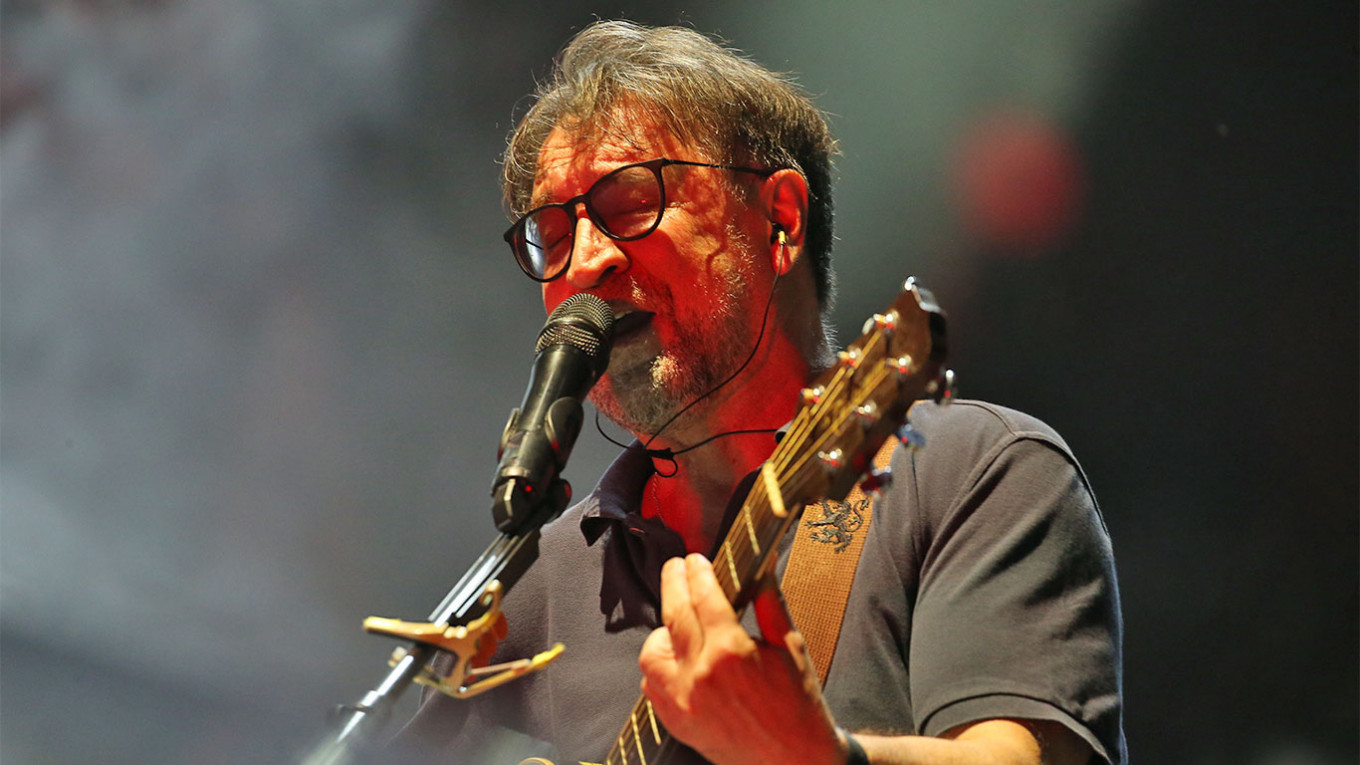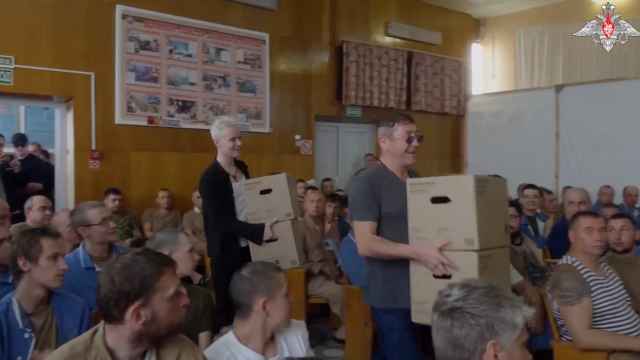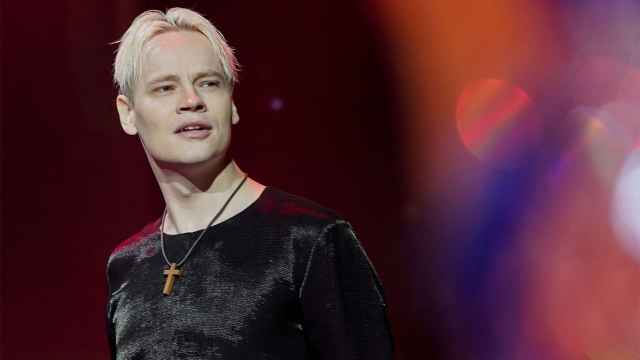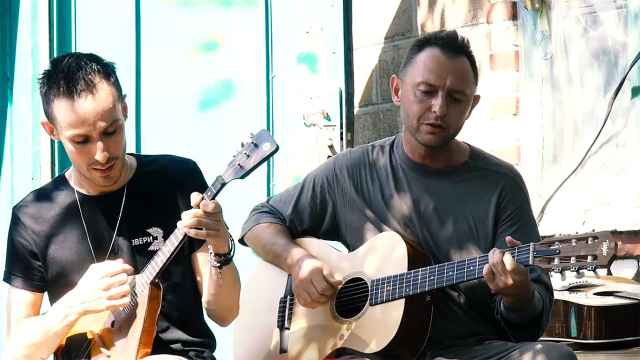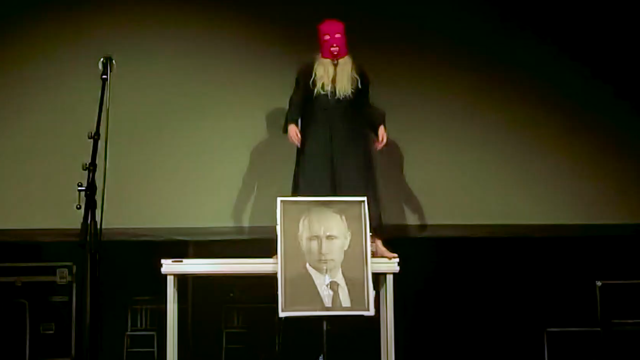DDT – Little death
The legendary rock band that was especially popular during the 80s and 90s and its frontman Yuri Shevchuk have repeatedly spoken out against the war in Ukraine.
On May 18, Shevchuk told an 8,000-strong crowd at DDT’s concert in Ufa that “the motherland, my friends, is not the president’s ass that has to be slobbered over and kissed all the time.”
As a result, Shevchuk was charged with “discrediting” the Russian military, and two of DDT's concerts were postponed or canceled.
The song "Little Death," released on March 1, describes the death of a little man from the provinces. Shevchuk ends the song shouting "He wants your death more than you want to live!"
Little Big — Generation Cancellation
Popular in Russia and abroad, the group Little Big is famous for its catchy tunes and expressive music clips.
The group left Russia in March, and on June 24, it released a single titled "Generation Cancellation" which showed rich politicians spewing propaganda, regular people living in poverty and airstrikes on civilian buildings. At the end of a clip, a politician presses the red button with the word "Cancel" in an allusion to the nuclear button.
In the description of the video, the band calls for a stop to the war in Ukraine.
Zemfira – Meat
Russian rock star Zemfira left the country for France. On May 20 she released her third anti-war video clip. Featuring drawings of war made by renowned Russian actress Renata Litvinova, the song describes Russian soldiers as cannon fodder.
She ends the song with: "Where have we come to? / Why have we come here?"
Shortparis — Apple garden
An experimental band from St. Petersburg, Shortparis hasn't spoken out explicitly against the war in Ukraine. However, during their concerts and in video clips, the band channels anti-war positions.
The band's frontman, Nikolai Kamyagin, was detained at an anti-war protest a few days after Russia invaded Ukraine. He was fined 10,000 rubles ($181).
In March Shortparis released a video clip of their 2021 song "Apple Garden." Featuring a choir of World War II veterans, Kamyagin sang about young soldiers and the sadness that blankets the Kremlin's spires.
At the end of the video, a grave-like hole is dug in front of the singers. Covered with snow, they throw apples into the empty hole.
Bi-2 – Lullaby
On June 27, Belarussian Bi-2 released an allegorical video for their song "Lullaby."
In the video, the Bi-2 frontman is blindfolded and pulls a string of TVs behind him, while another member shaves teenagers' heads like recruits having their heads shaved in the military.
"Bi-2 continues to observe the reality around them," the press release for the music video's premiere stated.
ooes – fade
A rising solo artist, Liza ooes has already been shown on Times Square and invited to Russia's biggest late-night show "Vecherny Urgant" ("Late Night Urgant"). She wrote a song about the fear that Russian and Ukrainian girls have shared since the war started.
The video clip was shot in Georgia where the musician currently resides. In the description of the video clip, ooes invites listeners to support Ukrainian refugees. During a recent interview with an independent music industry developing organization, Institute of Music Initiative, Liza stated that "no music can be outside of politics."
Boris Grebenshchikov – Vorozhba
Boris Grebenshchikov, frontman and founder of the famous rock band Aquarium, unequivocally stated his position on the first day of the Russian invasion of Ukraine.
"What is happening is true madness. The people who started this war are crazy. They are a disgrace to Russia."
As part of the Russians Against War charity tour to help the children of Ukrainian refugees, Aquarium's founder performed at the concert of rapper Oxymiron on March 24, one month into the war.
Two new wartime songs were published on Grebenshchikov's YouTube channel: "Obidaba" in March and "Vorozhba" ("witchcraft"), a tragic song where spells made "coffins grow in your heart" like "there is no tomorrow."
Diana Arbenina – Night Snipers
Diana Arbenina is the Belarus-born frontwoman of the group Night Snipers, a very popular 1990s-era rock band.
During her solo concerts after the war started, she declared that she was not going to emigrate, quoting Anna Akhmatova's poem Requiem: "I was with my people then, where my people, in their misfortune, were."
Arbenina sang a new song to a spare piano accompaniment at a concert in Chelyabinsk on April 17: "Who will answer for the tears of children, for the madness of adults? The boys are dying like snowbirds. Field of the dead, don't look back."
Noize MC – Ausweis
A big European tour called Voices of Peace was organized by Ivan Alexeyev, better known as Noize MC, and Liza Girdymova, known as Monetochka ("little coin" in Russian). Fundacja Siepomaga, which collects humanitarian aid for Ukrainian refugees, received the proceeds from their concerts.
In Warsaw during one of the charity concerts, Noize MC shared a new song titled "Ausweiss," which he described as "a hopeless statement of guilt and powerlessness."
Ausweis is the identification document that was given out to citizens of territories occupied by Nazis during the Second World War.
In his new song, Noize MC repeats the chorus "Don't whitewash yourself, you're guilty too //your ausweis is a multiple-entry visa to eternal hell."
25/17 — Be happy
The new album by the Omsk rap-rockers "Neizbyvnost'" is filled with references to Kurosawa and Letov.
"Right now, be happy, for later - only coffins, coffins, coffins." The rap group rhymes their own name - two, five, one, seven - with "peace to all" in an expression of how the band's worldview has been affected by the war.
Dictofon – Russian
Another song dedicated to the feeling many Russians are experiencing now was written by the low-profile, indie-rock band Dictofon.
The catchy chorus repeats over and over "yes, I'm also Russian; yes, I'm also saddened." The original lyrics were shared by the author and band's frontman, Anton Makarov, on the day Russia invaded Ukraine.
A Message from The Moscow Times:
Dear readers,
We are facing unprecedented challenges. Russia's Prosecutor General's Office has designated The Moscow Times as an "undesirable" organization, criminalizing our work and putting our staff at risk of prosecution. This follows our earlier unjust labeling as a "foreign agent."
These actions are direct attempts to silence independent journalism in Russia. The authorities claim our work "discredits the decisions of the Russian leadership." We see things differently: we strive to provide accurate, unbiased reporting on Russia.
We, the journalists of The Moscow Times, refuse to be silenced. But to continue our work, we need your help.
Your support, no matter how small, makes a world of difference. If you can, please support us monthly starting from just $2. It's quick to set up, and every contribution makes a significant impact.
By supporting The Moscow Times, you're defending open, independent journalism in the face of repression. Thank you for standing with us.
Remind me later.


